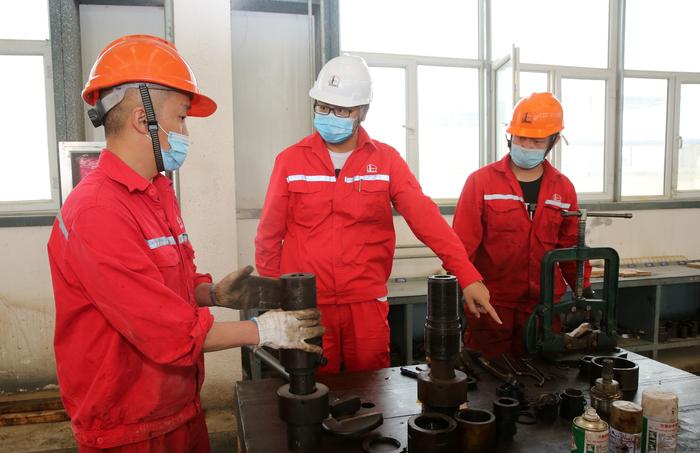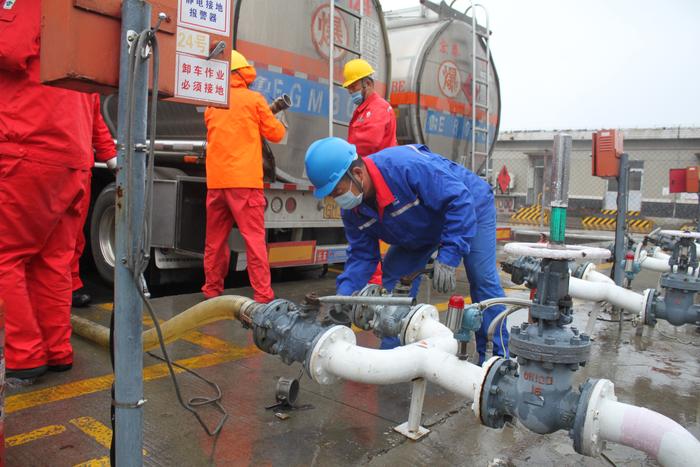|
| 2020-05-12 来源: 中国石化新闻网 |
| 石化新闻 |
|
中国石化新闻网讯 据CNBC网站5月10日消息:周一,沙特阿能源部长表示该国旨在提供额外的自愿减产以支持全球市场后,油价逆转上涨。 布伦特原油期货上涨26美分,至每桶31.23美元,美国西德克萨斯中质原油期货上涨43美分,至每桶25.18美元。 然而,由于对供应持续过剩的担忧,加上疫情造成的经济低迷,抵消了全球一些顶级产油国减产的支持,油价涨幅受到限制。 过去两周,由于各国放宽了商业和社会封锁措施,以及燃料需求小幅回升,所以两个基准指数均有所上涨。尽管如此,人们仍担心2021年需求将保持疲弱。 全球范围内石油流动的减少,使石油需求下降了约30%,同时,石油库存仍在增加。对美国存储空间即将耗尽的担忧导致WTI价格上月跌至负值,促使一些美国生产商缩减产量。 根据能源服务公司贝克休斯上周五公布的数据,在截至5月8日的一周内,全球最大产油国的石油和天然气钻井平台数量降至74个,创1940年以来的最低纪录。 东京三菱公司高级风险经理托尼·努南表示:“人们对美国停产的速度感到惊讶,这正是价格支撑所需。” “离6月份的合同到期还有10天...如果WTI合约能够避免崩盘到期的局面,我们将看到希望。” 冯娟 摘译自 CNBC 原文如下: Oil turns positive as Saudi Arabia says it will reduce output further Oil prices reversed gains and turned positive on Monday after Saudi Arabia’s energy minister said the kingdom aims to provide additional voluntary cuts in an effort to support global markets. Brent crude futures gained 26 cents to trade at $31.23 per barrel, U.S. West Texas Intermediate crude futures gained 43 cents to trade at $25.18 per barrel. Gains were capped, however, as concerns over a persistent glut and economic gloom caused by the coronavirus pandemic combined to cancel out support from supply cuts at some of the world’s top producers. Both benchmarks have notched up gains over the past two weeks as countries have eased business and social lockdowns imposed to cope with the coronavirus and fuel demand has rebounded modestly. Oil production worldwide is also declining. But possible signs of a second wave of coronavirus infections in northeast China and South Korea worried investors even as more countries started to pivot towards easing pandemic restrictions in moves that could support oil demand. Goldman Sachs analysts said there was still concern that demand will stay weak in 2021, with worries about a second wave of Covid-19 cases and only a modest increase in personal or corporate travel. Global oil demand has plummeted by about 30% as the coronavirus pandemic curtailed movement across the world, building up inventories globally. Fears that the United States is running out of storage space triggered WTI prices crashing into negative territory last month, prompting some U.S. producers to slash output. In a sign of that impact, the number of operating oil and gas rigs in the world’s largest oil producer fell to 74 in the week to May 8, a record low according to data released on Friday from energy services firm Baker Hughes going back to 1940. “People are surprised by how quickly the U.S. is shutting in production and that’s exactly what we need in order to support prices,” said Tony Nunan, a senior risk manager at Mitsubishi Corp in Tokyo. “There’s another 10 days before the June contract expires ... if the WTI contract can avoid a crash going into expiry, hopefully we’ve seen the bottom.”
|








